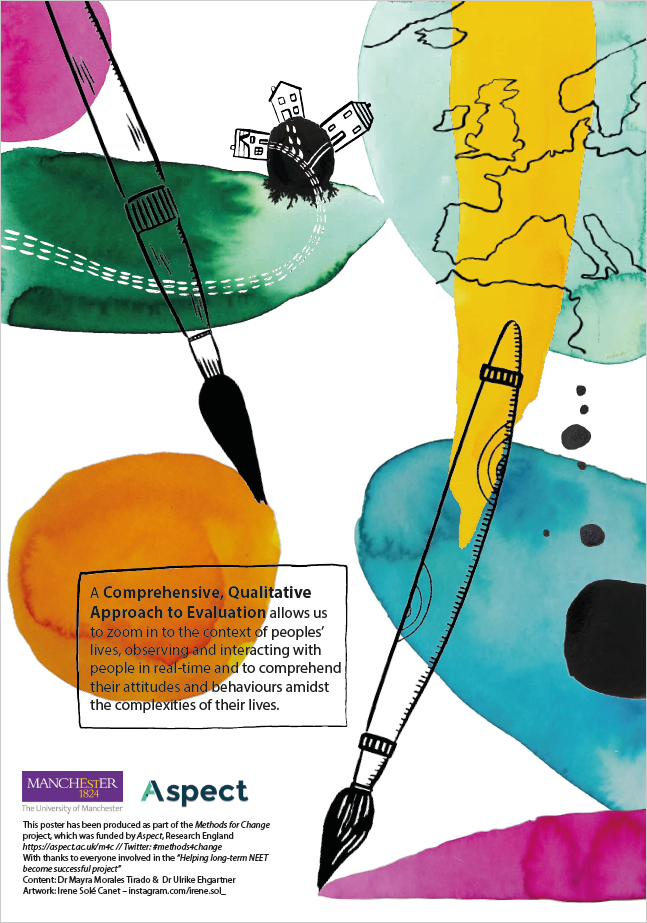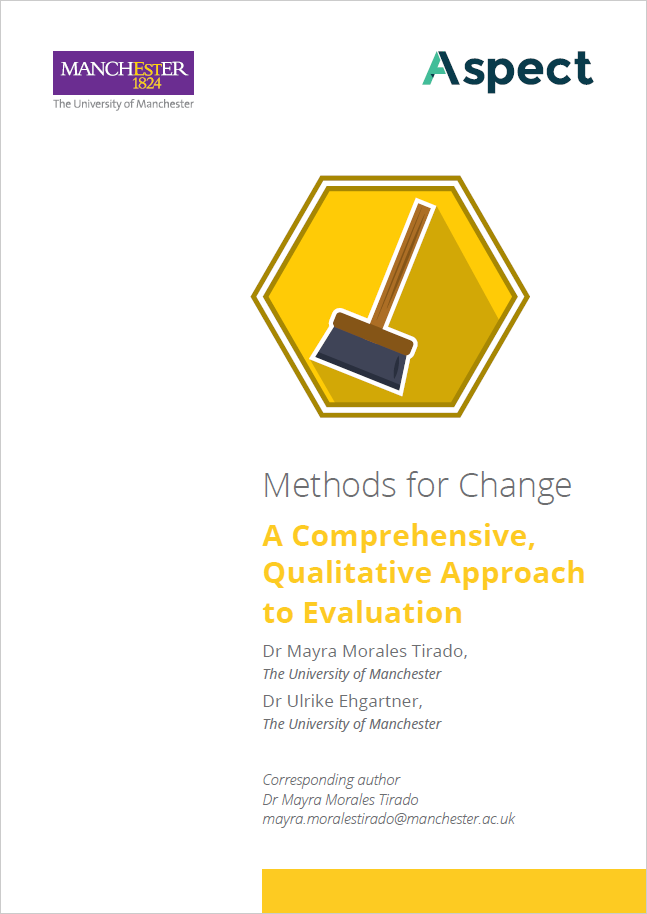Research Method: A Comprehensive Qualitative Approach to Evaluation
Taking a Comprehensive, Qualitative Approach to Evaluation means that quantitative approaches for evaluation complement qualitative research elements.
This can include various forms of interviewing, observation and documentary analysis, and different combinations of methods and materials depending on the nature of the research problem at hand. While quantitative approaches, such as those found in surveys and experimental studies, often allow researchers to produce and analyse large amounts of data, they tend to frame the problem rather narrowly. Conversely, qualitative approaches (e.g. interviews, observations) do not reduce problems to numeric values, instead providing a detailed picture of what is happening. Integrating qualitative elements challenges standard ways of doing evaluation, illuminating avenues for unexpected, fresh insights. The flexible perspective of such approaches enables researchers to consider significant institutionalised and systemic circumstances that shape the problem and its implications. This approach is instrumental in complex settings where interventions have repeatedly followed established dynamics in the past, but their impact remains unclear.

You can find all the research outputs from the Methods for Change series here






